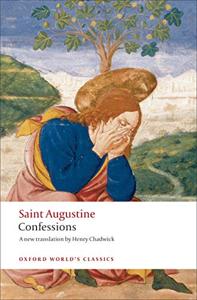
Want to learn the ideas in Confessions better than ever? Read the world’s #1 book summary of Confessions by Saint Augustine here.
Read a brief 1-Page Summary or watch video summaries curated by our expert team. Note: this book guide is not affiliated with or endorsed by the publisher or author, and we always encourage you to purchase and read the full book.
Video Summaries of Confessions
We’ve scoured the Internet for the very best videos on Confessions, from high-quality videos summaries to interviews or commentary by Saint Augustine.
1-Page Summary of Confessions
Augustine’s Confessions is not an autobiography in the literal sense, but rather uses his life as a basis for exploring religion and God. He explains how sin affects a Christian man’s life, and he explores the nature of good and evil. This book has had a tremendous influence on Catholicism apart from the Bible.
Augustine wrote about his life up to the point of his conversion. He focused on understanding Christian doctrines after he was converted, and described those in detail. The early chapters focus on specific events of Augustine’s life that led him into Christianity, but not everything is included or explained chronologically. Some key figures are ignored or unnamed because they were unimportant to Augustine’s story.
When Augustine was young, he went to church with his mother Monica. At that time, it was common for people to be baptized as adults because baptism could wash away sins. If someone committed a sin after baptism, they would not have been forgiven by God and would go to hell. This led people like Augustine (in Book VIII of The Confessions) to commit all their sins before they were baptized so they could get them washed away before death. Because of this practice and also because Monica wanted him to choose the faith himself, Augustine wasn’t baptized as an infant or child. He lived in a mostly Christian household but studied other religions while growing up.
Augustine was educated in the manner of sons of landholders. His studies were mostly in grammar, rhetoric, literature, and oratory with some arithmetic, philosophy and natural science. He moved to Mandauros for a short while but had to come back home as his parents couldn’t afford it. At the end of that year he went to Carthage where he could continue his education at a much better school
Augustine is concerned with the nature of sinful man and why people commit evil acts. In order to understand human nature, he examines his own life experiences. He analyzes these events in an effort to provide a lesson for himself as well as his congregation. By analyzing human nature, Augustine attempts to reveal God’s true nature through this examination of sinfulness and evil.
Augustine’s mother knew that he was having an affair with a woman in Carthage. He and his girlfriend were never going to get married, because it was customary for young men of Augustine’s social class to have a mistress before marriage. The girl from Carthage wasn’t promiscuous or adulterous, so Augustine’s mother didn’t mind the relationship. She thought it was better than someone who would sleep around or cheat on their spouse.
Augustine was born in 354 CE and grew up in the Roman province of Africa. He studied rhetoric, then taught that subject when he returned to his native town of Thagaste. While there, he became a convert to Manichaeism, which viewed God as an eternal duality between good and evil. Augustine believed this religion for some time but later came to view it as heresy because it contradicted Catholic Christianity’s belief that God is all-powerful and good. Confessions contains many arguments against Manichaean beliefs.
Augustine’s worldview led him to be an ascetic. He struggled with his feelings for people and material things that sometimes took precedence over God. This human weakness caused sin, which is not sinful in itself but can lead to it if one becomes too attached to the things of this world. People should love God’s creations, but they shouldn’t become too attached to worldly pleasures; otherwise their spiritual lives will suffer as a result. Later readers misinterpreted Augustine’s ideas and came up with extreme views about religion that he didn’t intend, such as prudishness or denial of the existence of the physical world. However, some people have interpreted Augustine correctly throughout history because his arguments are deep and difficult to interpret fully—they have often been misinterpreted by Christian and non-Christian readers alike.






